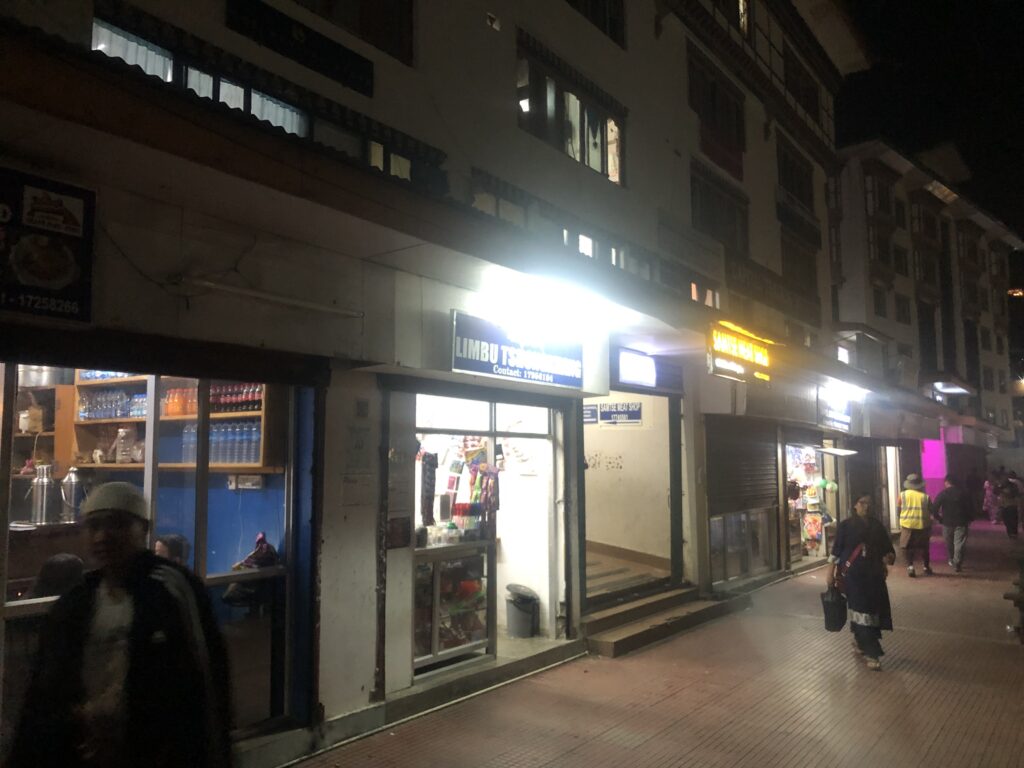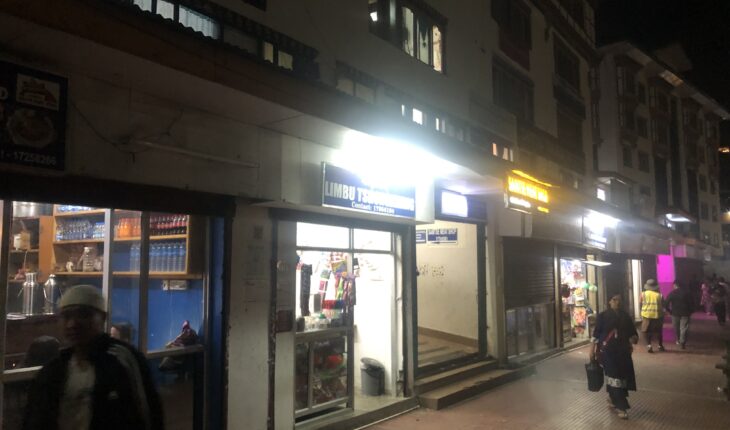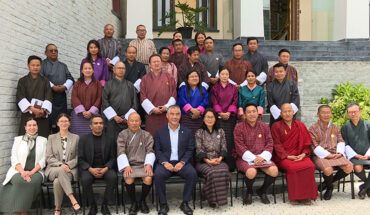
NGAWANG JAMPHEL
Thimphu
At exactly 5 PM, as the evening sun softens its glow over Thimphu, 23-year-old Tashi Yangzom settles into her usual spot on a well-worn wooden bench along a bustling stretch of street locally known as the “Chinese Line.”
Nestled between the road opposite Pelkhil School, this unassuming row of around 50 small shops has quietly become one of the city’s most vibrant cultural hubs—a place where fast food is only the beginning.
For Tashi, who has spent four years coming here after school, the Chinese Line is more than a collection of snack stalls and eateries. “It’s been four years, but it still feels like my first day here,” she says, eyes following a vendor expertly tossing noodles in a sizzling wok. “This place became part of my life the moment I joined Pelkhil.”
Though the “Chinese Line” doesn’t appear on official maps, it is a landmark for many in the city—students, office workers, taxi drivers, and locals alike. Lined with small eateries, fast-food counters, and snack stalls, it’s a place where urban energy collides with social tradition, forging a unique communal spirit that defines the neighbourhood.
Every afternoon, as school lets out, hundreds of students in crisp uniforms gather here, their laughter mixing with the sounds of clinking plates and sizzling food. Plates piled high with steaming thukpa, fried rice, and meat skewers are passed hand to hand. Conversations flow freely—about exam results, the latest TikTok trends, and weekend plans. The air is alive with the buzz of youthful chatter, punctuated by the calls of vendors.
“It was never the sun or rain that stopped people coming here,” says Karma, who has been running a stall at the Chinese Line for the last four years. His stall, one of the oldest along the line, is a favorite for many. “I’ve seen students grow up, finish school, and still come back. It’s like a place where memories live.”
Indeed, the Chinese Line is much more than a collection of shops. It is a heartbeat of daily life—a shared space where stories unfold. Students leave their bags on benches while they dash to get extra chili sauce. Taxi drivers swap jokes as they wait for their meals. Groups of friends linger long after their plates are empty, savouring both food and friendship.
For Tashi, this is the one place in Thimphu where she truly feels at home. “Even if you come alone, you never feel lonely here,” she explains. “You hear laughter, you see people you know—it’s like being part of something.”
As the evening darkens, the Chinese Line transforms yet again. Neon lights flicker on, casting a warm, colorful glow over the narrow alley. Office workers arrive, shedding the stresses of their day over shared bowls of steaming noodles. Couples find quiet corners for intimate dinners. Young people stop by for quick bites before heading home.
The smells here are unmistakable and comforting—the sharp bite of garlic frying in hot oil, the sweet saltiness of soy sauce sizzling on the pan, the pungent tang of pickled vegetables. These scents cling to clothes and hair, long after people leave, evoking memories that linger.
Despite its charm and popularity, the Chinese Line faces challenges. Some vendors worry about rising rents and new municipal regulations. Others fear the impact of large food courts and malls, which could lure away their customers. Yet, for now, the Chinese Line remains a lively, unshakable presence in the city.
Tashi is confident it will endure. “Even if they build new malls, people will still come here,” she says with a smile. “It’s not just the food—it’s the feeling you get here. You can’t replace that.”
By 7 PM, the crowd grows thicker. Voices rise, laughter gets louder, and plates keep arriving. In this corner of Thimphu, life unfolds not through grand events but through countless small moments—moments shared over simple meals and familiar smiles.
The Chinese Line is a reminder that in a rapidly modernizing city, some places hold onto their soul by keeping the heart of community alive.
Here, every bowl of noodles and every shared smile tells a story of belonging, resilience, and connection. It’s a place that doesn’t just feed the body but also nurtures the spirit of Thimphu’s people -one plate at a time.





